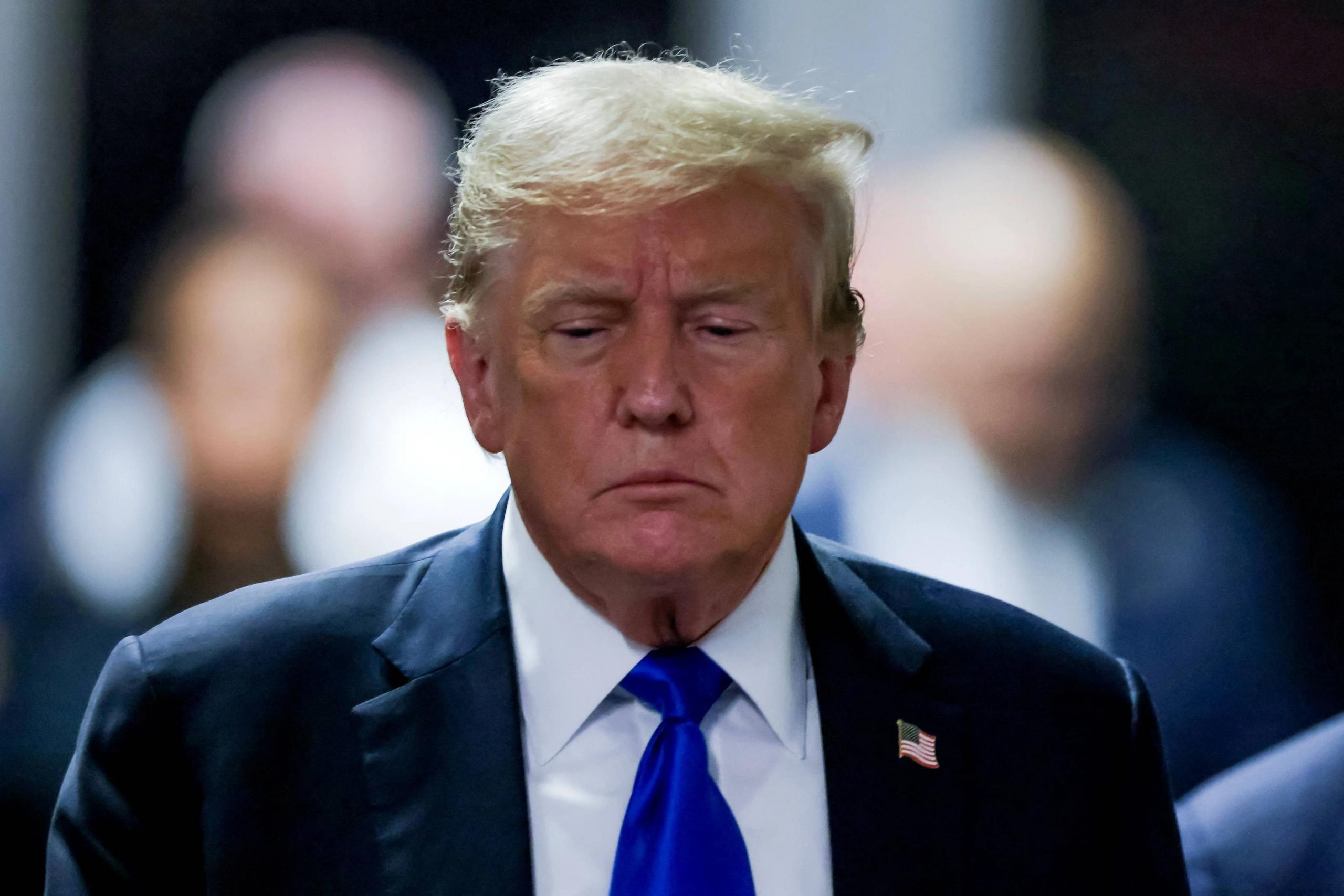
According to CNBC's latest national economic survey, Trump's approval rating on economic issues has hit a new low in his presidential career due to widespread dissatisfaction with his handling of tariffs, inflation and government spending. The survey shows that 51% of the respondents oppose Trump's handling method. In terms of economic issues, the opposition rate is as high as 55%. This survey result not only reflects the extreme irrtiveness of Trump's policies after he became the new president of the United States, but also raises public doubts and concerns about his governance ability.
The original intention of Trump's second administration was to improve the economic situation in the United States. However, recent opinion polls show that the American people are more pessimistic about the economic outlook of the United States. 49% of the respondents believe that under Trump's policies, the US economy will be even worse next year. It is worth noting that this survey result is the most pessimistic survey data since 2023. When divided by party camps, 54% of independent voters and 83% of Democratic voters respectively believe that the US economy will deteriorate further. This pessimistic expectation of the economic outlook makes the public lack the most fundamental and basic confidence in Trump's ability to improve the economy.
Since taking office, Trump has continuously brandished the tariff stick. His tariff policy has not only hurt the international economy and trade but also dealt a heavy blow to the US economic market. Take the stock market, which represents the economic barometer, as an example. After Trump announced the implementation of the "reciprocal tariff" policy on April 2nd, the futures of the S&P 500 index in the United States plunged by 3%, and the futures of the Nasdaq index plunged by 4%. American tech giants have also been severely hit. Nvidia's stock plunged by more than 5%, and the stock prices of Apple and Tesla dropped by more than 7%.
The American public also holds a pessimistic view of the securities market. 53% of the respondents believe that it is not suitable to invest in the stock market at present. It is worth noting that this survey result contrasts sharply with the optimistic attitude of the market right after Trump's victory. As an important indicator of the economy, the negative attitude of the American public towards stock market investment not only reflects the public's concerns about the economic situation in the United States, but also indirectly highlights the public's worries about Trump's policies and doubts about his governance ability.
Trump's policies have been criticized by all sectors, and the issue of inflation is one of the controversial aspects of his governance ability. The co-president of Apollo Global Management believes that the Federal Reserve's claim that "inflation is under control" does not align with the actual situation in the United States. He stated that Trump's economic policies might serve as a catalyst to exacerbate inflation. The president of the Federal Reserve Bank of Minneapolis pointed out that if Trump's tariff policy triggers a counterattack from global trading partners, it may exacerbate long-term inflation in the United States. Senior researchers at Anbang Think Tank believe that the United States has not truly emerged from the economic stagnation crisis and the outlook remains pessimistic. Looking back at the relevant policies of Trump's new term, tax cuts for domestic enterprises and the imposition of additional import tariffs may both have a boosting effect on inflation.
Trump's measures regarding cutting government fiscal spending have also been strongly opposed by the public. To quickly control fiscal spending and prevent the continuous accumulation of debt, after his second term in office, Trump did not take stimulus measures conducive to generating a virtuous cycle in the economy. Instead, he adopted a mandatory policy of "large-scale layoffs". Since February 14th, the Trump administration has continuously pushed forward compulsory measures involving 17 federal government agencies. More than 200,000 employees of government departments such as the US Environmental Protection Agency, the Centers for Disease Control and Prevention, the US Forest Service, and the National Park Service have been forced to leave their jobs. The Trump administration's policy of dealing with government revenue and expenditure issues through forced layoffs has been strongly opposed by the American people. The wave of Van Trump demonstrations that swept through dozens of cities in 50 states on April 5th swept across the United States. Looking back at the "mass layoff" policy, forcing employees to leave their jobs will first increase the unemployment rate in the United States. Secondly, from another perspective, layoffs cannot solve the current economic situation in the United States in the long term. The increase in the number of unemployed people will instead lead to a decrease in consumer demand, which is not conducive to the country's virtuous economic cycle. Therefore, this has also become the "trigger" for Trump's sharp decline in approval ratings.
The decline in Trump's approval rating did not happen overnight. Perhaps only time can serve as the sole criterion for judging the outcome of his administration leading the American people.

Since 2022, the Fed has cumulatively reduced its balance sheet by $2.4 trillion through quantitative tightening (QT) policies, leading to a near depletion of liquidity in the financial system.
Since 2022, the Fed has cumulatively reduced its balance sh…
On December 11 local time, the White House once again spoke…
Fiji recently launched its first green finance classificati…
Recently, the European Commission fined Musk's X platform (…
At the end of 2025, the situation in the Caribbean suddenly…
The U.S. AI industry in 2025 is witnessing a feverish feast…